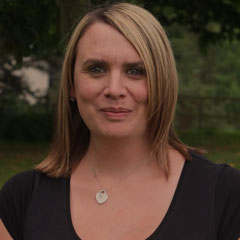Lucy Tindall, Research Fellow, Department of Health Sciences
Lucy is a Research Fellow in the Mental Health and Addiction Research Group (MHARG).

She has a BSc in Psychology, an MSc in Health Psychology and was awarded her PhD at the University of York in 2022.
Lucy joined MHARG in July 2021 having previously worked for 10 years as a trial coordinator in the NHS. Her research interests are in child and adolescent mental health, particularly in the development and evaluation of brief therapies for young people with emotional disorders.
email: lucy.tindall@york.ac.uk
Our 60-second interview with Lucy:
Could you please tell us what work you do in the field of mental health?
I manage a large programme of research called ComBAT which is seeking to develop and evaluate a new intervention, based upon an approach called Behavioural Activation, for treating low mood/depression in young people. My main role is overseeing all elements of the research and ensuring that it runs successfully to time and target.
What do you find most rewarding and inspiring in this work?
The most rewarding part of my role is receiving feedback from young people and/or their families that the work we have completed has made a positive difference. Low mood/depression can negatively affect so many aspects of an individual’s life and so knowing that we have made a positive change is incredibly fulfilling.
What is the most challenging or complicated aspect of this work?
Having come from an NHS background much of my previous experience has been based on embedding research into clinical settings. My current role is more community-based and at times it has been challenging to incorporate our work into non-NHS services where policies and procedures for this are less clear.
What impact do you hope your work is having - or can potentially have?
My hope is that the work we do has a positive impact in mental health provision for young people. For a variety of reasons so many young people are unable to access timely and appropriate support for their needs. I hope that, through our research, we are able to change the trajectory of depression for young people and make positive changes to their lives.
Could you share with us one piece of advice that you follow for your own mental health?
I think it is incredibly important to be kind to yourself and, even when things are difficult and challenging, to acknowledge our own achievements and positive contributions.